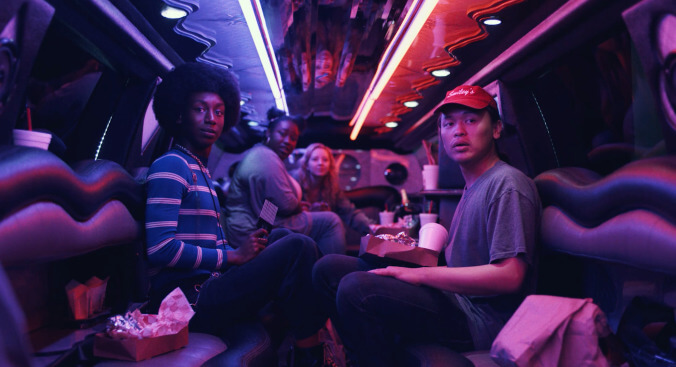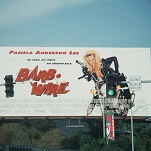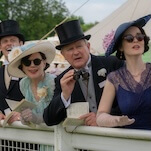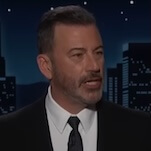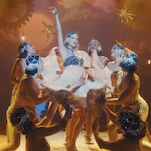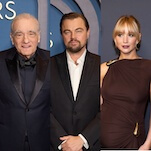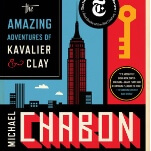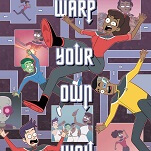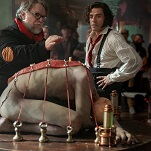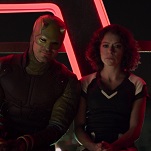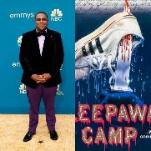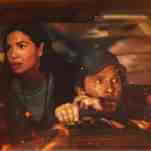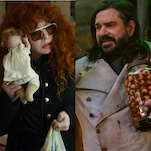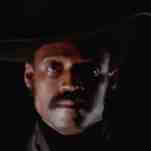For someone situated within the overlapping circles of self-loathing that are being a critic and being a millennial, witnessing acts of unselfconscious creativity like the new movie Summertime can be distressing. Faced with earnest expressions of dreams tightly held by young people that have every right to be a bunch of cynical assholes yet have somehow resisted the call, the fight or flight centers of a reviewer’s brain light up all at once like glitchy fireworks. “How are these teenagers so self-possessed?,” you think, panic building behind your eyeballs. “Oh, shit. I think they really mean it.”
It’s tempting to conclude that Summertime does a disservice to its cast of young performers by giving them the impression that if they were to stand up on a city bus and start reciting a spoken word piece, everyone would clap. But these kids aren’t that naive. They’re just passionate. Each one of the Los Angeles high-school performers in Summertime participated in a poetry workshop, and the results were good enough that they got to showcase their best work in a feature film that debuted at the Sundance Film Festival before landing a theatrical distribution deal. That’s pretty fucking cool. And if sincerity makes some portion of their audience nervous… well, that’s not their problem, frankly.
Director Carlos López Estrada is not new to integrating spoken word into his movies: His 2018 feature debut, Blindspotting, famously built to a cathartic slam poetry confrontation. Summertime elevates this love of language from seasoning to main course, constructing an entire film around the output of arts nonprofit Get Lit, which specializes in teaching teenagers to express themselves through poetry. Each of the 25 students featured is listed as a co-writer of the film, and many of them play some version of themselves on screen. The result is a street-level La La Land told not by starry-eyed transplants but by native Angelenos. Title aside, it doesn’t convey a distinct sense of any particular season—at least, not to this Midwesterner—but it does introduce viewers to a number of unique takes on its sprawling, multicultural city.
Set over the course of a single day, Summertime moves from west to east, passing the proverbial mic from character to character as it goes. As the movie begins, Olympia (Olympia Miccio) roller skates down the pier at Venice Beach, singing a dreamy ode to the area’s sunny skies and colorful characters. A collision on the sidewalk introduces us to another recurring character, Tyris (Tyris Winter), who spits out his frustration about the changing city and his place in it through Instagram videos and Yelp reviews. Two pretentious podcasters coming out of the same restaurant walk us to another storefront, where we meet the Rosencrantz and Guildenstern of the piece, rap duo Anewbyss (Bryce Banks) and Rah (Austin Antoine), whose comedically meteoric rise to fame forms the backbone of the story.
In so much as there is a story, anyway. Summertime is more of a series of vignettes than a fully formed narrative. Characters meet and part, their arcs intersecting and overlapping, linked by serendipity and Estrada’s camera, which moves with an energy carried over from the director’s music video work. With some light plotting added to tie all the elements together, Summertime only has one segment that’s wholly disconnected from the others, a restful intermission. Similarly, only once does the whole thing erupt into a song-and-dance number, as women in flamenco dresses cavort outside of the Mexican restaurant where Paolina (Paolina Acuña-González) is expressing her complicated relationship with her mother through the symbol of red lipstick. Acuña-González’s piece is one of the emotional highlights of the film. Another is “Shallow,” Marquesha Babers’ showstopping kiss-off to a crush who made her feel unlovable and unwanted.
Watching the tears dripping down Babers’ cheeks as she bares her most painful vulnerabilities in verse, you want to protect her—protect all of these young people—from those who would chortle at their earnest love of poetry. But, again, Summertime doesn’t need our protection. Tongue-in-cheek in-jokes abound—take the title of one character’s book, How To Rap Battle Your Demons. And the cast is unshakably confident. Whether they’re paying loving homage to working at a family Korean restaurant or giving two middle fingers to a fast food job they hate, chasing their dreams or chasing an ex, the commitment each of these performers brings to their art is endearing. Likewise, the collaborative spirit of the project is inspiring, enough to recommend the film to creative teenagers and theater kids of all ages. The poetry can be pretty engaging, too, once you get over yourself.
